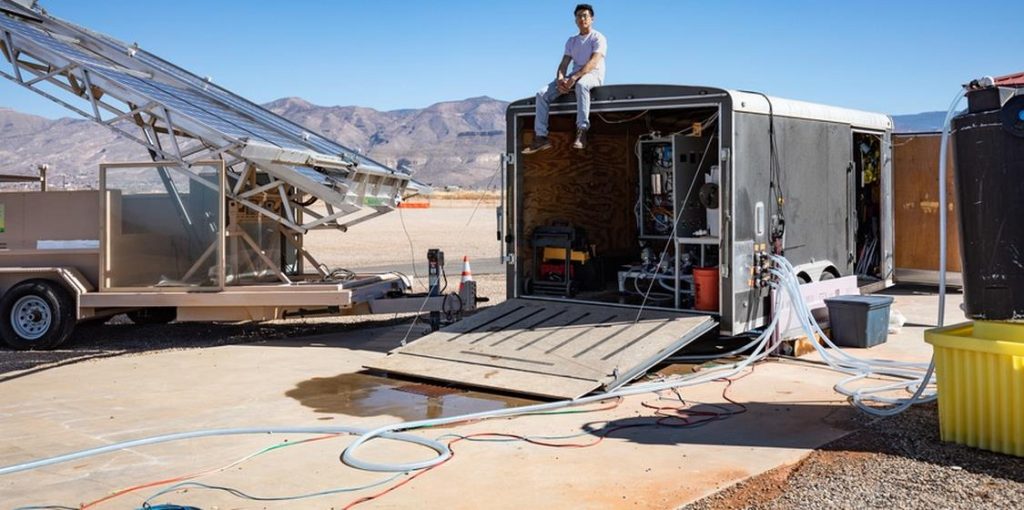In a remarkable effort to tackle the global water crisis, a dedicated team of engineers at MIT has developed an innovative solar-powered desalination system. Their creation promises to deliver clean water to those in need while minimizing costs and environmental impact. This heartwarming story showcases the power of human ingenuity and teamwork in addressing one of our planet’s most pressing challenges.
An extraordinary group of engineering students and professors at MIT has turned the challenging issue of water scarcity into a hopeful source of inspiration. They have engineered a groundbreaking device that transforms brackish groundwater into fresh drinking water using the abundant power of the sun. The inventive design eliminates the need for traditional battery storage, making it an affordable solution for many communities.
This solar-powered desalination device has the potential to produce over 1,000 gallons of clean water daily. What sets it apart is its ability to adjust its operation based on real-time solar energy production. Every second, the system analytics gather information about sunlight intensity, allowing the device to modify how much water it pumps. This clever feature means that no energy is wasted, making the technology even more effective.
One of the project co-authors, Jonathan Bessette, who is a PhD student in mechanical engineering at MIT, noted, “Many communities are situated far from the coast and rely only on groundwater, which is increasingly impacted by climate change. Our device could be a game-changer for these areas, providing sustainable, affordable access to clean water.”
Despite the challenges posed by changing weather conditions, the team persisted in refining their technology. They faced the delicate task of creating an efficient feedback system capable of reacting to even the smallest fluctuations in sunlight. After rigorous testing and improvements, they successfully reached a point where 94% of the solar energy generated was used immediately for desalination—an impressive feat that avoids delays inherent in energy storage systems.
During a 6-month field test at a research facility in Alamogordo, New Mexico, the system was able to generate an impressive 5,000 liters of water per day. This achievement showcased how effectively the device could adapt to different sunlight conditions while meeting water needs.
Amos Winter, a respected mechanical engineering professor at MIT, explained why this innovation is groundbreaking: “Traditional desalination methods rely on stable power and typically need battery storage to counteract variable solar energy. Creating potable water with renewable energy, without the need for battery systems, is a significant challenge we’ve now addressed.”
With their success, Bessette and Winter hope to take their innovative technology beyond the laboratory. They are now looking to establish a company aimed at delivering this vital resource to water-stressed communities around the globe.
JOIN IN SHARING THIS INSPIRING STORY OF INNOVATION FOR A BETTER WORLD!
If you would like to see similar good news stories click here & Share this to brighten someone’s day.




